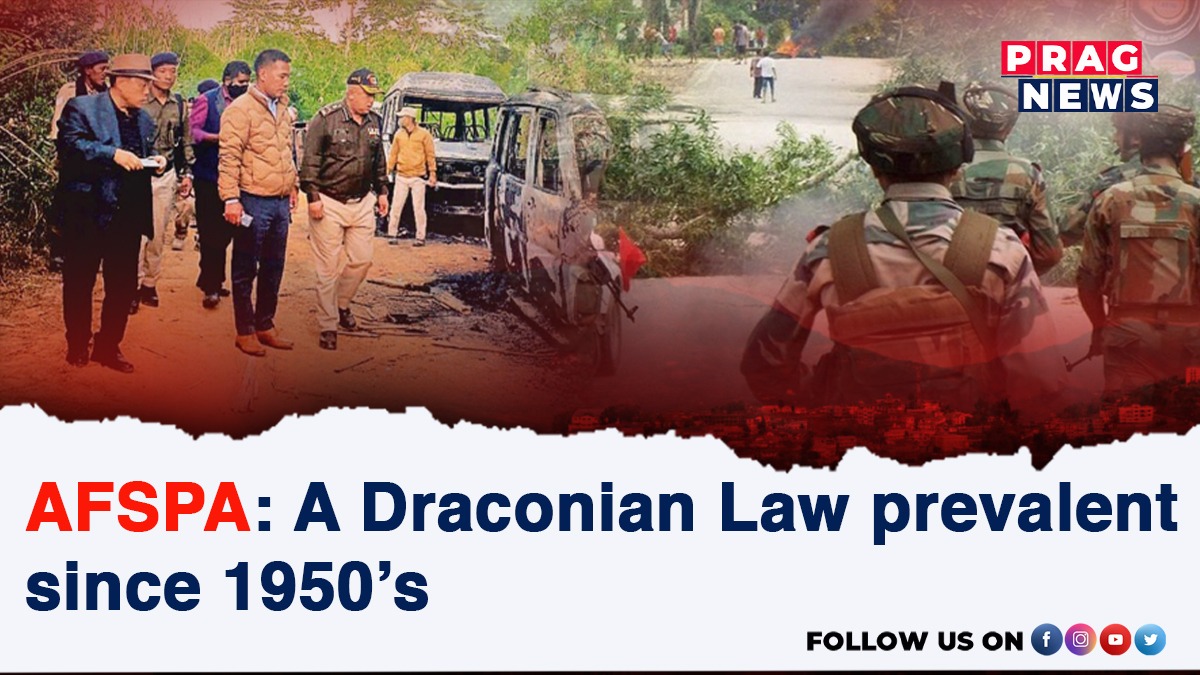Regional

The history of this controversial Act goes back to the era of the Quit India Movement in 1942 when mass violent movements broke out. The then Viceroy of India, Lord Linlithgow, declared emergency all over India and thereafter initiated the Armed Forces (Special Powers) ordinance 1942, which provided immune powers to the British officials. They could shoot or arrest anyone without any warrant or without the concern of any higher officials then.
With the increase in the occurrence of violence in the North-East states of India in 1958, the two houses of the parliament initiated and passed the Armed forces (special power) Bill, which immediately was passed as an act and received presidential approval on the 11th of September 1958.
The same was also put into action in Jammu and Kashmir in the year 1990.
The Act provides immunity to the officials of the ‘Armed forces’ to operate without any restrictions in the marked, ‘disturbed areas’.
AFSPA has been tremendously criticized by various human rights commissions and activists for a long time, as the ‘inhuman’ instances possess a great threat to the citizens of the country, they believe there is a huge loophole in the implementation of this act in the country.
According to our Indian Judiciary, an offender is considered as ‘innocent' until proven guilty, but in contrast, this Act provides immunity to the Armed Forces from extrajudicial killings.
The nation bows down to the supreme sacrifices made by the ‘Jawans’ of the Indian army while protecting the borders and keeping off the enemy, but the shady acts of the armed forces from time to time cannot be ignored as well.
AFSPA was introduced to fight against the Naga insurrection following which it was applied to the prescribed disturbed areas as per the Act which was at that time the North-Eastern states of India mainly.
The sole purpose for which this Act was introduced was to protect the political boundaries and anti-national insurrections but the question that arises here is, is it being implemented for the desired purpose in the country since then?
According to the human rights activists, crimes and inhumane activities committed by the Armed forces is diabolical.
Instead of protecting the nation’s people, it has been exploiting them ruthlessly. Even if on one side it has successfully stopped uprisings and enemies from infiltrating the country, on the other side it has become a reason to invite the vengeance of the people of the nation and give birth to greater anti-national uprisings. So, what really needs to be done is to keep a good and strict check on the officials, amend the laws and introduce rigorous punishment for such offenses. It is also important to introduce limitations for the unconditional power of the Armed forces and introduce a greater role for the Supreme Court to attain justice.
Leave A Comment